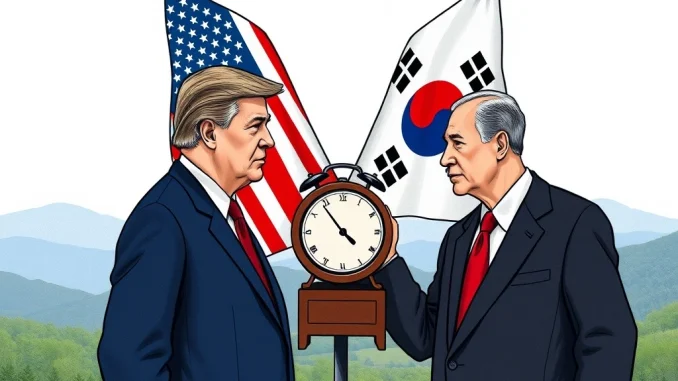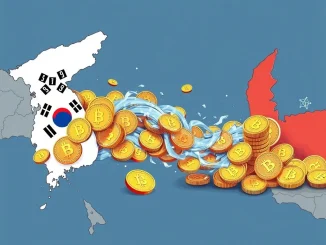
The landscape of international commerce is often complex, and the ongoing South Korea US trade talks are no exception. For anyone tracking global economic shifts, particularly those impacting major economies, the status of these critical discussions holds significant interest.
What Did President Lee Jae-myung Say About the Talks?
Addressing the public on his first 30 days in office, President Lee Jae-myung of South Korea provided an update on the reciprocal tariff negotiations with the United States. According to a report from the local news outlet, The Hankyoreh, President Lee stated he could not confirm whether these talks would be completed by the anticipated July 8 deadline.
His remarks underscored the challenging nature of the discussions currently underway between the two nations.
Why Are These Tariff Negotiations Difficult?
President Lee acknowledged the inherent difficulty in the current round of tariff negotiations. While both countries are actively working towards an outcome that benefits both sides, a key challenge identified by the President is the lack of clearly defined goals from either party.
Navigating complex economic relationships requires precision, and the absence of explicit objectives can prolong discussions and create uncertainty regarding potential outcomes for a comprehensive US trade deal.
What Does Uncertainty Mean for Bilateral Trade?
The uncertainty surrounding the conclusion of these talks by the July 8 deadline has implications for bilateral trade between South Korea and the United States. Delays in reaching agreements on tariffs can affect various industries, impacting import and export costs and potentially influencing investment decisions.
Successful South Korea US trade talks aim to establish predictable and mutually beneficial trade conditions. When the timeline for reaching such conditions becomes unclear, businesses and markets may react cautiously.
Key aspects highlighted by President Lee include:
- Difficulty in reaching a quick agreement.
- Both sides are attempting to find common ground.
- A lack of clear, defined goals complicates the process.
- The July 8 deadline completion is not guaranteed.
Looking Ahead: The Path for South Korea US Trade Talks
Despite the challenges and the uncertainty regarding the July 8 deadline, the commitment from both sides to find a mutually beneficial outcome remains. The process of negotiating a significant US trade deal with a key partner like South Korea involves balancing various economic interests and political considerations.
The statement from President Lee Jae-myung serves as a realistic assessment of the current situation, managing expectations about the pace of progress in these important tariff negotiations.
Conclusion
The future of South Korea US trade talks remains in flux as the July 8 deadline approaches. President Lee Jae-myung’s candid assessment reveals the complexities and difficulties inherent in these high-stakes bilateral trade discussions. The lack of clearly defined goals presents a significant hurdle, and observers will be watching closely to see if a breakthrough can be achieved or if the uncertainty surrounding a potential US trade deal will persist beyond the initial target date.



